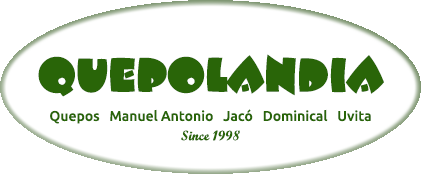Haber = To have #2 REVIEW
By Os
HABER is an auxiliary-helping verb that we use in español when we talk about things and/or actions that we have done in the past.
Something like:
I have spoken / I have eaten / I have lived / I have been / I have had / I have gone / I have driven / I have gotten / I have done something / I have made something / etc, etc, etc…
Remember that in español the “H – h” is silent.
HabER = TO have #2
| I he | you, s/he ha |
| we hemos | y’all, they han |
HABER is an auxiliary-helping verb that we use in español when we talk about things and/or actions that we have done in the past.
“…actions that we have done in the past…”;
“…that we have done…”;
“…have done…”;
“…done…”
DONE is a past participle. ¿A what? A past participle. A past participle (p.p.) is a word that indicates past or completed action or time. We don’t call them past participles. We call them: “p.p.’s” = “pee pees”.
| English | p.p. | Español | p.p. |
| To speak | spoken | HablAR | hablADO |
| To love | loved | AmAR | amADO |
| To walk | walked | CaminAR | caminADO |
| To cook | cooked | CocinAR | cocinADO |
| To be # 2 | been | EstAR | estADO |
¡YES! The p.p. of a Spanish –AR verb ends in “ADO”.
| English | p.p. | Español | p.p. |
| To eat | eaten | ComER | comIDO |
| To drink | drunk | BebER | bebIDO |
| To have | had | TenER | tenIDO |
| To be # 1 | been | SER | sIDO |
¡YES! The p.p. of a Spanish –ER verb ends in “IDO”.
| English | p.p. | Español | p.p. |
| To get | gotten | ConseguIR | conseguIDO |
| To live | lived | VivIR | vivIDO |
| To go | gone | IR | IDO |
¡ALSO! The p.p. of a Spanish –IR verb ends in “IDO”.
Remember that when we want to say something like:
I have spoken / I have eaten / I have lived / I have been / I have had / I have gone / I have driven / I have gotten / I have done something / I have made something / etc, etc, etc…
Because we want to indicate something that has been done in the past. We do have to use the verb:
HABER + p.p. Exactly like this:
HabER = TO have #2
| I he + p.p. | you, s/he ha + p.p. |
| we hemos + p.p. | y’all, they han + p.p. |
And to make a negation we have to place the word “no” before the verb, before the action word, before: haber, he, ha, hemos, han…
Do not place “no” between the verb and the p.p.
| Positive | Negative |
| Yo he hablado | Yo NO he hablado |
| Yo he comido | Yo NO he comido |
| Yo he vivido | Yo NO he vivido |
That was a great review, eh? Now I am gonna ask you some questions and I want you to answer them using FULL sentences, don’t be lazy! Play with the verb HABER + p.p. But before that let me teach you two phrases that we use a lot when we use this tense (Present Perfect), when we play with the verb HABER + p.p. They are:
Todavía no = Not yet.
Hasta ahora = Until now = (So far).
Ready? Let’s go! (As usual, I will write my answers below yours and you can e-mail me yours to oscostarica@gmail.com)
¿Ha hablado con su mamá esta semana?
______________________________________________
Sí, yo he hablado con mi mamá esta semana.
¿Ha hablado con su papá?
______________________________________________
No, todavía no he hablado con mi papá.
¿Ha comido pizza este mes?
______________________________________________
No, he comido pizza este mes, pero espero hacerlo.
¿Qué ha hecho=done hoy?
______________________________________________
Yo he estado ecribiendo este artículo.
¿Por cuánto tiempo ha vivido en Manuel Antonio?
______________________________________________
Yo he vivido en Manuel Antonio por cinco años.
¿Dónde ha trabajado usted?
______________________________________________
Yo he trabajado en muchos lugares. He trabajado en tiendas, bares, hoteles, compañías…Aquí, ahí y allá.
¿Ha estudiado español?
______________________________________________
No, nunca he estudiado español. No es necesario, jaja.
¿Cuántos libros ha leído este año?
______________________________________________
Este año yo he leído dos libros. Hasta ahora…
¿Qué es lo más extraño que ha comido?
______________________________________________
Lo más extraño que he comido son sesos de vaca.
¿Qué es lo más increíble que ha visto=seen?
______________________________________________
Lo más increíble que he visto son Las Cataratas de Iguazú.
¿Qué es lo que más le ha impresionado?
______________________________________________
Creo que Machu Pichu es lo que más me ha impresionado hasta ahora.
¿Cuáles lugares de Costa Riva ha visitado?
______________________________________________
He visitado muchos lugares de Costa Rica. He visitado playas, montañas, volcanes, pueblos y ciudades.
¿Ha viajado mucho?
______________________________________________
Más o menos, He viajado un poco en América y otro poco en Europa. Y espero ir a Asia en el futuro…
¿Ha entendido cómo usar el verbo HABER?
______________________________________________
Yo espero que usted haya (advance grammar) aprendido.
Os has been teaching Spanish for more than 2000 days to ALL levels and ages…¡Let him help you learn! Schedule a FREE Spanish Trial Lesson here in Manuel Antonio or through SKYPE
www.OsCostaRica.com (+506) 88-222-936

